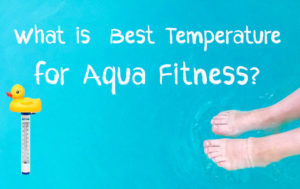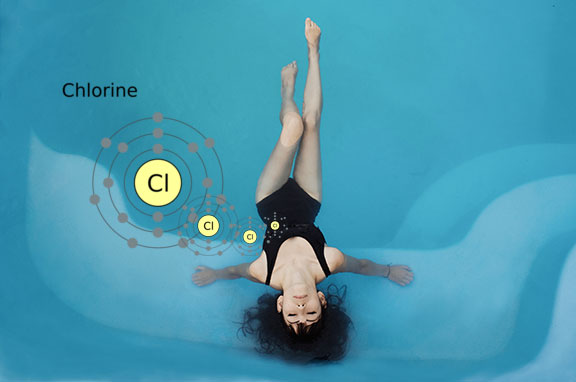What is the best temperature for Aqua Fitness? The answer depends on a number of considerations. But for most people, the ideal water temperature for Aqua is between 83 F (28.3 C) and 88 F (31.1 C).
In deciding how warm to heat the pool think about:
Will you get in? If you are the type who shudders at the thought of a cold pool, then it’s better to heat the pool on the warm side because if it is cooler, you may blow off doing your exercise. So heat the pool warmer when you first start out doing Aqua. Then once you get in the habit, turn it down a bit.
Can you afford the heating bill? Depending on the weather where you live and how big your pool is, the cost of heating a pool may vary. If you can’t afford the heating bill in winter months, consider investing in some lightweight wetsuits instead. Also look into pool covers and solar heating.
Will you be working out vigorously, or gently? If you will be doing a regular workout, start with fast jogging to warm up. Usually the initial cold will wear off in just a few minutes. Do not heat the pool too warm if you will be doing a vigorous workout because you may overheat and be uncomfortable once you get started. If you plan to do gentle workouts, however, such as Aqua Pilates or Aqua Yoga, you may want the pool warmer.
How old are you? Older people and children prefer a warmer pool. In fact, seniors are advised not to work out in pools that are too cold.
How many people are working out in the pool? In a mixed group, there may be people who prefer it cooler and those who prefer it warmer. The best course is to adjust the temperature so that it safe for the oldest members without being uncomfortably warm for others.
When I give private Aqua lessons, I request that client try to heat their pool to somewhere between 83 and 88 degrees if possible. That way the lesson is enjoyable, safe, and productive.


